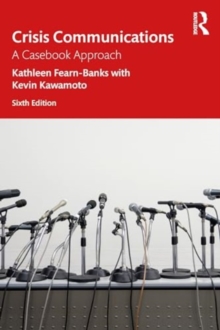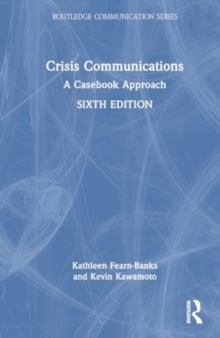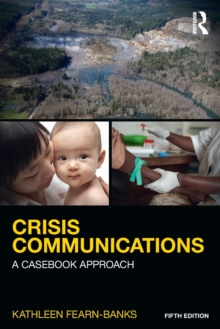
Responding to Crisis : A Rhetorical Approach to Crisis Communication PDF
Edited by Dan Pyle Millar, Robert L. Heath
Part of the Routledge Communication Series series
Description
In recent years, researchers and practitioners have explored the nature, theory, and best practices that are required for effective and ethical crisis preparation and response.
The consequences of being unprepared to respond quickly, appropriately, and ethically to a crisis are dramatic and well documented.
For this reason, crisis consulting and the development of crisis response plans and protocols have become more than a cottage industry.
Taking a rhetorical view of crisis events and utterances, this book is devoted to adding new insights to the discussion, and to describing a rhetorical approach to crisis communication.
To help set the tone for that description, the opening chapter reviews a rhetorical perspective on organizational crisis.
As such it raises questions and provokes issues more than it addresses and answers them definitively.
The other chapters can be viewed as a series of experts participating in a panel discussion.
The challenge to each of the authors is to add depth and breadth of understanding to the analysis of the rhetorical implications of a crisis, as well as to the strategies that can be used ethically and responsibly.
Central to this analysis is the theoretic perspective that crisis response requires rhetorically tailored statements that satisfactorily address the narratives surrounding the crisis which are used by interested parties to define and judge it.
This volume will be of value to scholars and students interested in crisis communication, and is certain to influence future work and research on responding to crises.
Information
-
Download - Immediately Available
- Format:PDF
- Pages:392 pages
- Publisher:Taylor & Francis Ltd
- Publication Date:08/12/2003
- Category:
- ISBN:9781135640248
Information
-
Download - Immediately Available
- Format:PDF
- Pages:392 pages
- Publisher:Taylor & Francis Ltd
- Publication Date:08/12/2003
- Category:
- ISBN:9781135640248










